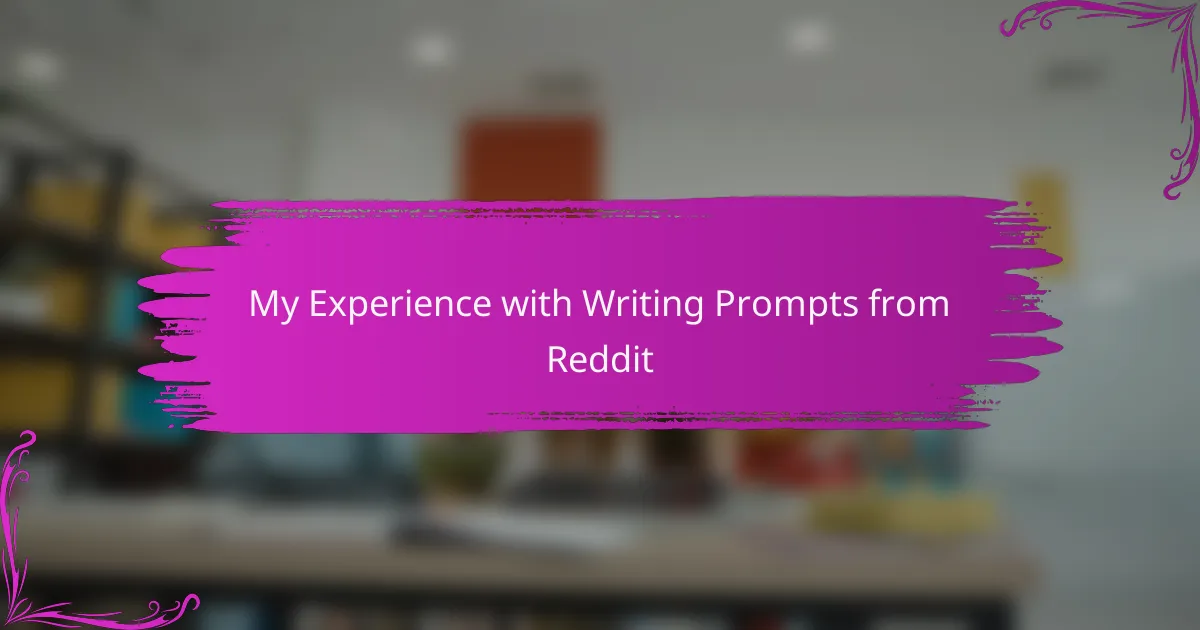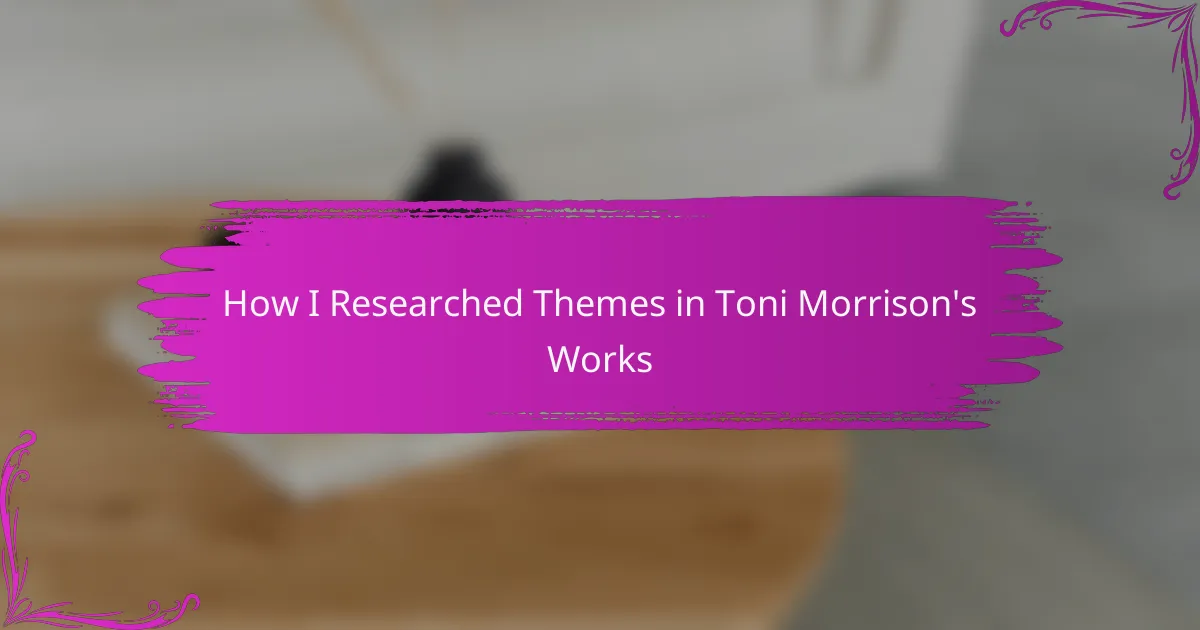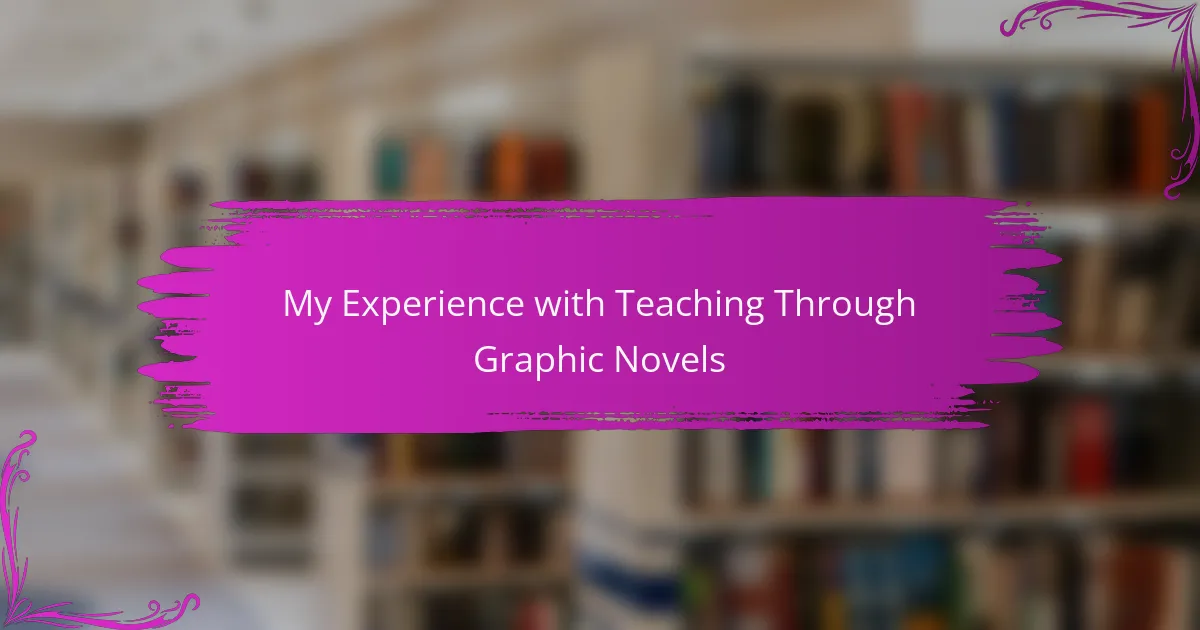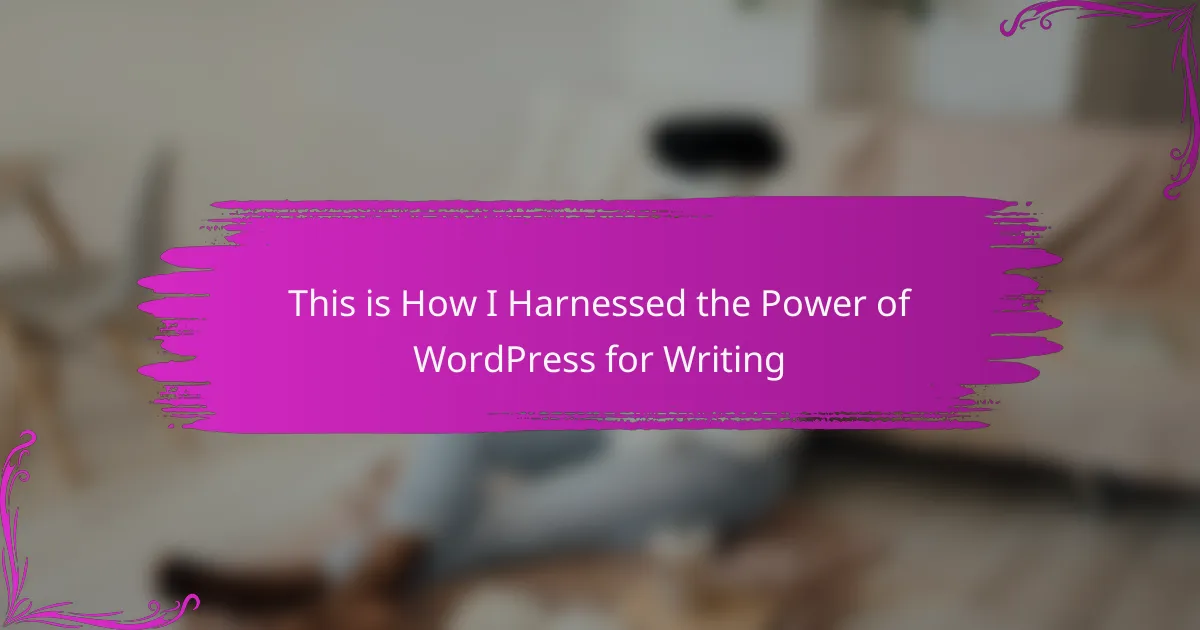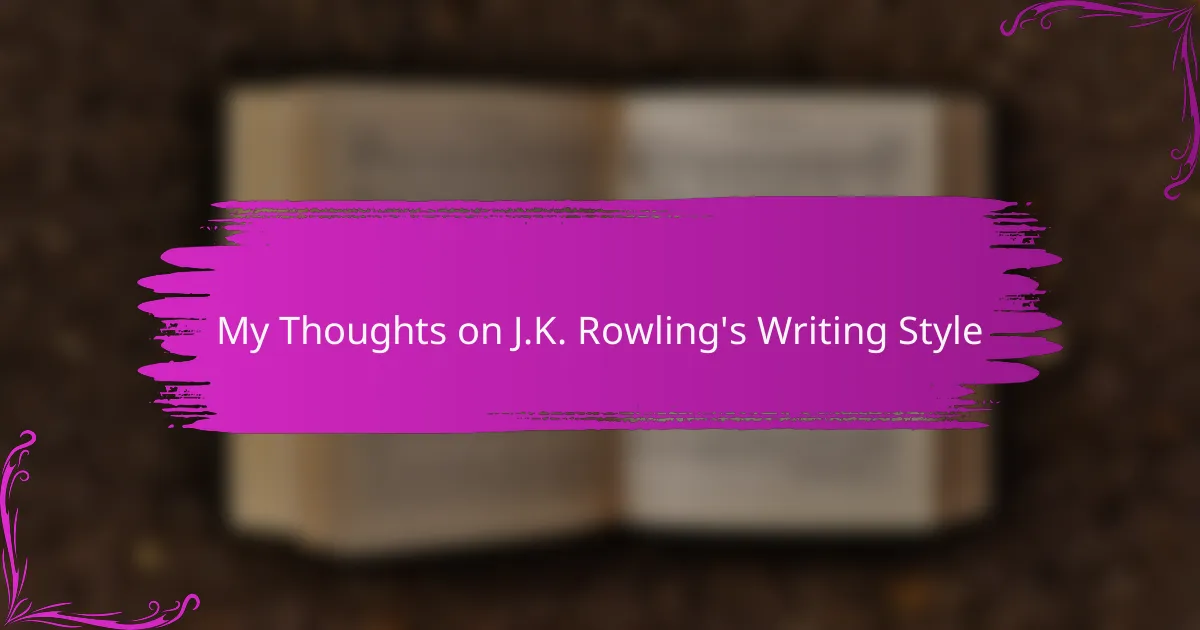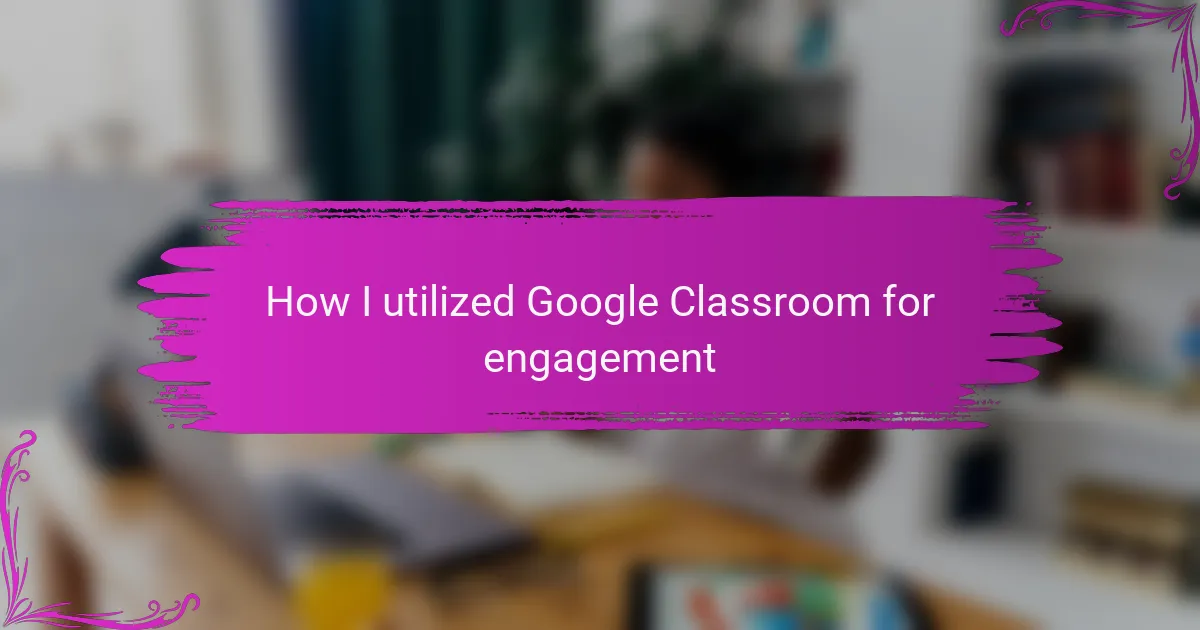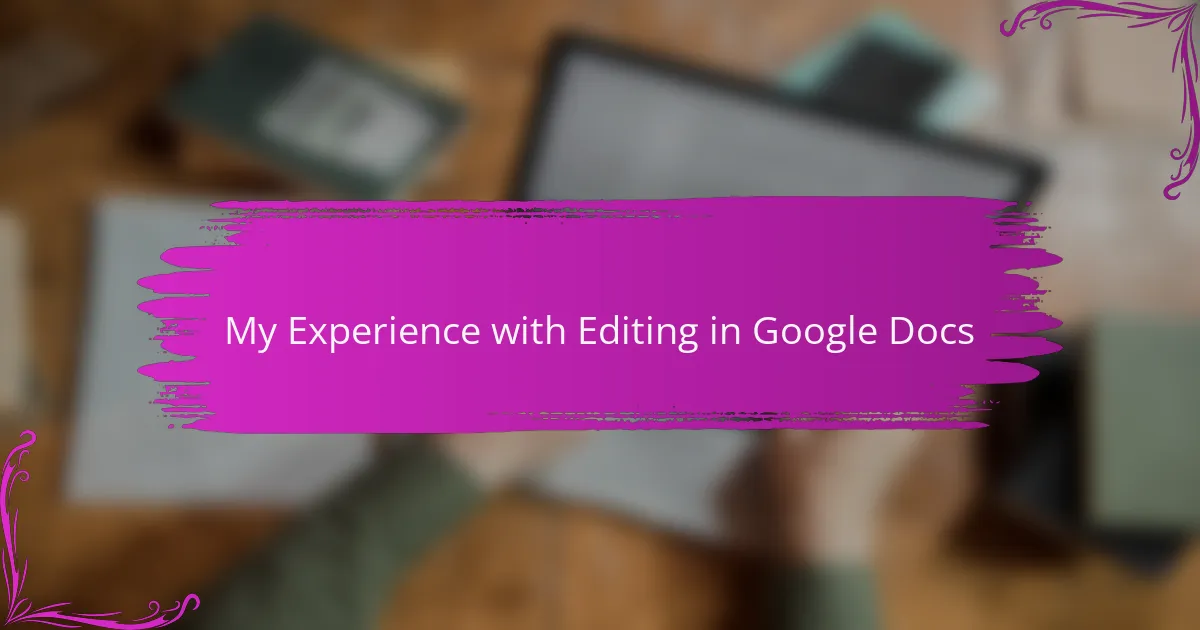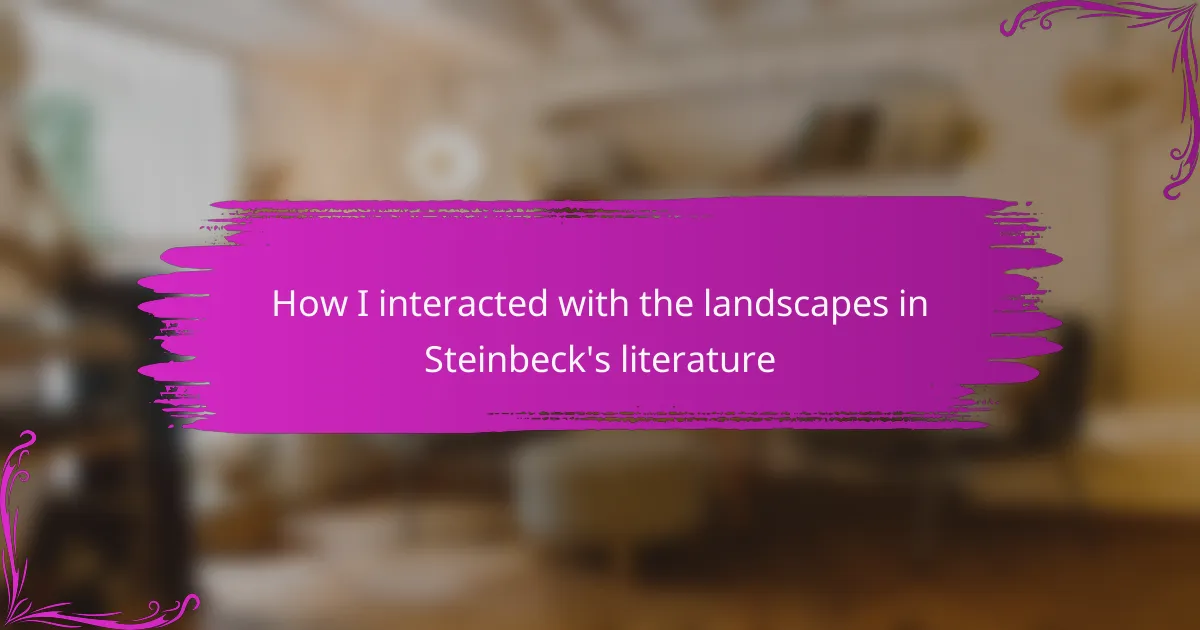Key takeaways Writing prompts are effective tools for enhancing creativity and overcoming writer’s block, allowing both seasoned and novice writers to explore new ideas. Engagement with diverse prompts can lead to personal growth, self-reflection, and the discovery of unique writing styles. Participating in writing communities like Reddit fosters collaboration and a sense of belonging, enriching […]
Key takeaways Minimalism in literature emphasizes simplicity and invites deeper reader engagement through unspoken subtext. Hemingway’s key principles include economy of words, the iceberg theory, and a focus on dialogue-driven narratives that reflect authenticity. Character development in Hemingway’s work relies on actions and dialogue rather than detailed backstories, fostering reader intimacy and emotional connection. Practical […]
Key takeaways Toni Morrison’s works explore deep themes of identity, race, motherhood, and the impact of history on personal narratives. Literary themes foster connections between readers and characters, encouraging critical thinking about societal issues. Morrison’s character development reflects broader social themes, illustrating personal and communal healing through emotional authenticity. The use of symbolism in her […]
Key takeaways Graphic novels enhance visual engagement and comprehension, making complex themes more accessible to students. They foster diverse perspectives and rich discussions, allowing students to connect personal experiences with literature. Incorporating graphic novels can increase motivation among reluctant readers, transforming their attitudes towards reading. Challenges include underestimating the medium’s depth and ensuring all students […]
Key takeaways WordPress offers a user-friendly interface that allows writers to focus on content creation without technical distractions. Customizable themes and a vast library of plugins enhance personalization and improve writing quality. The visual editor and post-scheduling features support creativity and effective content management. Engaging with the supportive WordPress community can provide valuable assistance and […]
Key takeaways J.K. Rowling’s “Harry Potter” series captures readers with themes of friendship, loyalty, and the struggle between good and evil. Her writing is characterized by vivid imagery, relatable characters, and a blend of humor with serious themes, enhancing reader engagement. Rowling masterfully employs world-building and character development, creating immersive experiences that resonate with her […]
Key takeaways Diverse literature resources enhance engagement and foster a deeper appreciation for reading across different learning styles. Google Classroom transforms literature education by facilitating communication, resource sharing, and providing real-time feedback. Incorporating multimedia resources and small group discussions in Google Classroom encourages active participation and collaboration among students. Timely feedback from teachers significantly boosts […]
Key takeaways Microsoft Teams enhances collaboration through real-time communication, organized channels, and integrated tools, making project management more efficient. Clear objectives, effective communication, and regular check-ins are essential components for successful project management. Fostering a supportive environment and celebrating small wins can significantly boost team morale and collaboration. Using features like “@” mentions helps streamline […]
Key takeaways Google Docs enhances collaboration with real-time editing and commenting, fostering community among writers. Utilizing features like suggestion mode and version history allows for safer experimentation and improved clarity in writing. Breaking down the editing process into stages and taking regular breaks can significantly enhance focus and insight. Embracing feedback and maintaining organized documents […]
Key takeaways Steinbeck’s landscapes serve as vital characters, reflecting the emotional states and struggles of his characters. Nature’s beauty and brutality amplify the narrative’s thematic depth, evoking strong sensory experiences for readers. Personal connections to the landscapes enhance reader engagement and prompt reflections on one’s own environment. Creative activities, such as visual collages and poetry, […]
